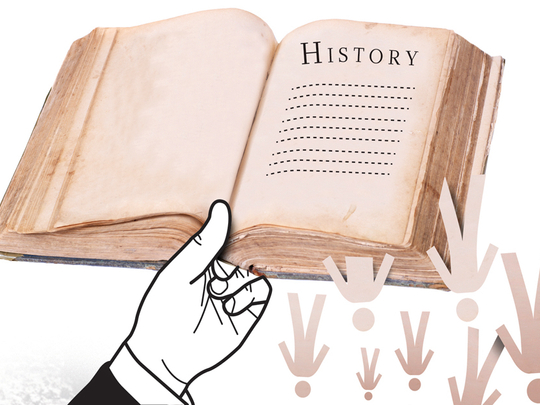
I am a great believer in the study of history, and not only because we seem endlessly doomed to repeat it. The study of what has gone before is a useful if generally ignored corrective to our contemporary tendency to see every problem as sui generis.
Happily, 2015 has been an outstanding year for history books. I mention a baker’s half-dozen here, not necessarily because they’re the best — although they might be — but because of what they teach us about the perils of the present. Every book on the list taught me something new.
Contrary to the views of some critics, Snyder isn’t minimising the role of anti-Semitism in the Holocaust. Instead, he’s emphasising the often-overlooked role of geography. The elimination of the Jews, he contends, was accomplished most completely in “stateless” lands — places where government collapsed, often because of consecutive onslaughts from the Soviet Union and Germany. Countries where bureaucracy survived proved more resilient against the Final Solution, although many adopted some part of its ideology. If you know your history, you’ll likely point out that the most obvious counterexample is France. Snyder’s answer is that France adapted the eliminationist ideology to its own purposes, seizing the opportunity to rid itself of foreign Jews.
Although I read widely about the Holocaust, I learned something new in every chapter. The multilingual Snyder has mined contemporaneous Eastern European sources that are often overlooked. Not every reader will like the final chapter, in which he draws explicit connections with several controversies of today, but the rest of the book is excellent in every respect.
This book was actually published late in 2014, but I didn’t have a chance to read it until this year. Meredith is a frequent chronicler of African history. This one clocks in at over 700 pages, but it’s well worth the read. In many ways it’s a narrative of civilisation itself. Meredith rejects both the romantic view of pre-colonial Africa as a paradise and the deterministic view that geography uniquely held Africa back. For Meredith, the continent’s history is one of constant battle over the remarkably rich deposits of natural resources. Slavery and colonialism are the most visible eras in that history, but they are hardly the only ones. Every page is vividly written. I especially liked the bits on Cecil Rhodes (about whom Meredith has written before) and on the ways that the difficulty over the centuries of producing a reliable map of the continent’s interior led to bloodshed.
An intellectual history, but history still, that definitely belongs on this list. Turns out we’re not the first generation to worry about the death of the novel. Greif, who teaches at the New School, worries about the death of the project of searching for the nature and purpose of man, a project that motivated a great deal of writing in the period he covers. A particularly nice bit on Lionel Trilling, and on Saul Bellow’s and Ralph Ellison’s influences on each other.
Others have told the story of Benga, the Congolese man who early in the 20th century was exhibited in a cage at the Bronx Zoo alongside an orangutan. But Newkirk, a professor of journalism at New York University, has tracked down new sources, and completely demolishes the tale that those who brought him to the US had any motive other than commercial exploitation. She also traces the tragedy of his life after he was “freed”. It would be wrong to overemphasise what the book teaches us about race in America today, but it would be wrong to underemphasise it, too.
An important book for those who want to support same-sex marriage but worry about the slippery slope. Witte, director of the Center for the Study of Law and Religion at Emory University, mines both religious and philosophical sources on the nature of marriage, giving us in effect a guided tour on where the traditional norms over which we do harsh battle came from. From this history, he offers intriguing reasons for distinguishing polygamy as posing a particular threat to a broad range of Western values in ways that same-sex marriage does not.
Another intellectual history. Thaler, a professor at the University of Chicago and one of the pioneers of behavioural economics, is a marvelous read. I won’t go into the details, because they’ve been so widely discussed elsewhere, including in an appreciation by Cass Sunstein the other day. I will say that what’s truly enjoyable about Thaler is his lighthearted style, even when aiming daggers at the lions of the Chicago school.
OK, I’m not sure what insights this book has for the present day. But rarely has a volume of history been more fun to read. Why do we all think of London as foggy? How has the fact of the London fog (if it is a fact) influenced literature and art, even economics and politics? The bits on 19th-century writers are especially vivid.
— Bloomberg
Stephen Carter is a law professor at Yale University.









